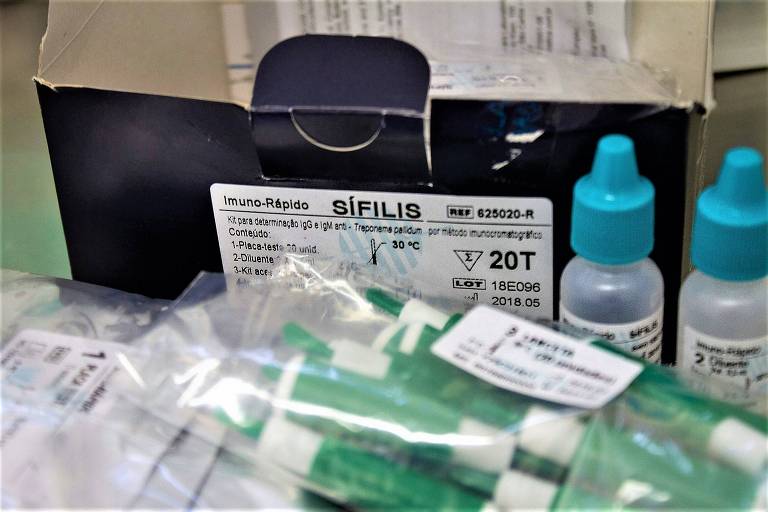Despite successive warnings in recent years, Brazil has not yet managed to stop the advance of syphilis. Last year, the country recorded the largest number of cases of the disease since 2010, when reporting began to occur regularly, according to data from the Ministry of Health.
In 2018 alone, there were 158,000 cases of acquired syphilis, equivalent to 75.8 cases per 100,000 inhabitants. For comparison, a year earlier, this rate was 59.1 cases per 100,000.
Preliminary data from 2019 indicate that the trend is unlikely to reverse this year.
This advance trend is global and worries the World Health Organization, although the organization does not have updated numbers of disease prevalence.
Experts say data represent an improvement in identifying cases through examinations and difficulty in controlling the progress of the disease in the country.
"At least three times a week I get test results that show syphilis. Many are from patients who have had treatment but became infected again. Every day this becomes more frequent," said infectious disease specialist Eliana Bicudo, consultant to the Brazilian Society of Infectious Diseases.
According to the Ministry of Health, other factors have contributed to the increase in cases.
"There is progress in the disease, related to both to greater detection capacity and the reduction of preventive measures," said the Secretary of Health Surveillance of the folder, Wanderson Oliveira.
Chief among them, he says, is a reduction in condom use, in a context where people have more sexual partners.
Still, according to the secretary, problems in the supply of penicillin in recent years also helped to boost the disease in different countries.
Translated by Kiratiana Freelon
